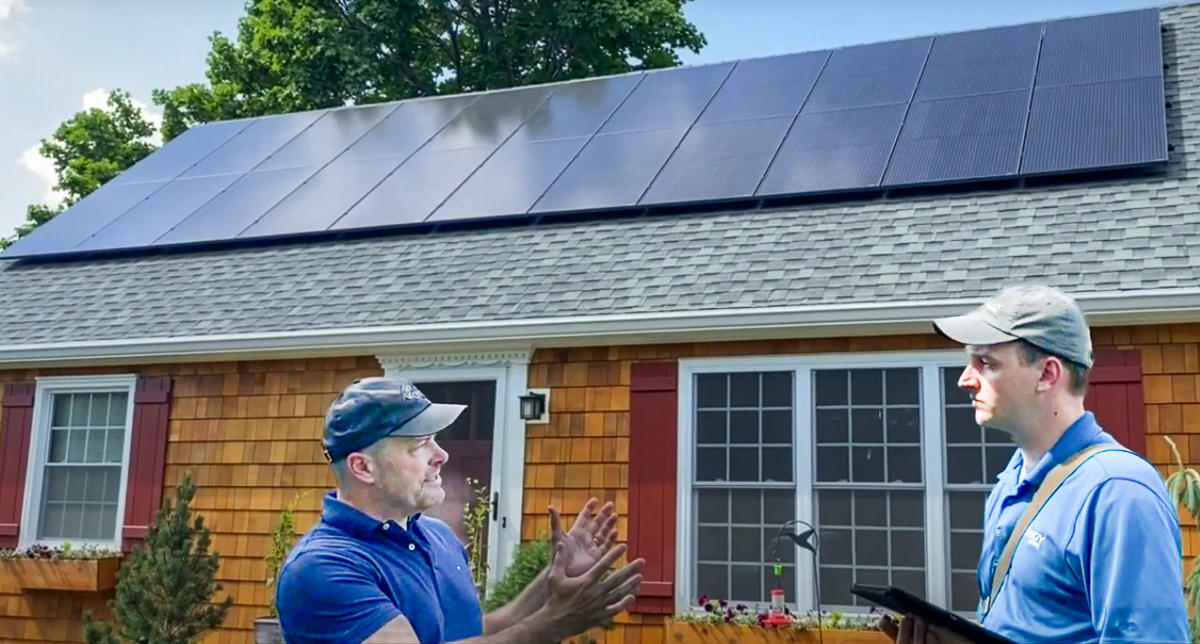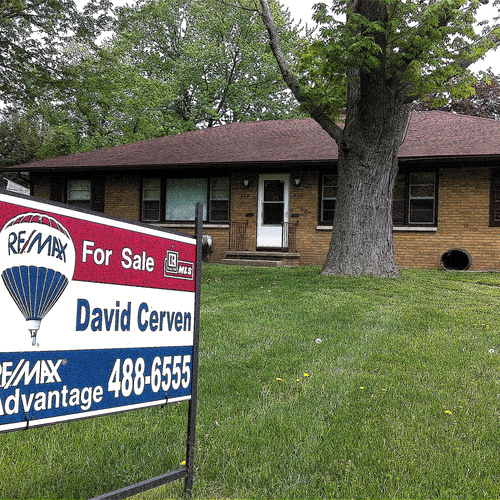
Massachusetts real estate agents are hoping that lawmakers won’t force home sellers to tell prospective buyers how energy-efficient their houses are. The reason? Disclosing energy use in older homes might depress sales and put homeowners at a competitive disadvantage.
But in Chicago, a study of how energy cost disclosures affected sales in 2013 and 2014 suggested just the opposite: houses whose listings included energy data sold faster and got a higher percentage of the asking price than houses listed without the information.
The analysis was carried out by Elevate Energy, a Chicago-based non-profit, after the city passed an amended energy disclosure ordinance in 2013. The firm examined 18 months of records for single-family home sales, both detached houses and attached dwellings like townhouses.
The study made two key findings:
- Houses whose energy costs were part of the listing sold for an average of 97.2% of the asking price, compared with an average of 95.9% for houses that did not list energy costs. With the average sales price for an attached home of $352,000, the difference meant an extra $4,576 for the seller. The difference in some neighborhoods was even more pronounced.
- Houses with disclosed energy costs sat on the market for less time. For townhouses and other attached dwellings, time spent on the market was 69 days for houses with disclosed energy costs and 93 days for houses whose owners didn’t disclose energy costs. The difference for detached houses was much less — 104 days compared with 111 days.
In a longer description of the study, the authors note that homeowners are generally more interested in energy efficiency than in the past, but there’s no easy way to share information about it during a real estate transaction.
“Efficiency improvements that homeowners make to an existing house remain invisible during key steps of any home sale or refinance transaction,” they wrote. “One result is that energy efficiency investments are overlooked or inaccurately valued at the time of a home sale. Energy cost disclosure in a multiple listing service helps solve this problem.”
When efficiency improvements are fairly valued, homeowners are encouraged to invest in them because they know they will be able to recoup some of the cost. The authors called this a “virtuous cycle that drives the entire existing single family market to become more energy efficient.”
Chicago passed its original disclosure ordinance in 1987. It required owners of single-family and two- to four-unit homes to disclose the previous 12 months of heating costs — typically gas. The information was required at the time of sale, not when the seller put the house on the market.
The city revisited the issue in 2013, becoming the first municipality in the U.S. to permit the disclosure of energy information when the house was listed. The updated ordinance was expanded to include the cost of electricity, regardless of what heating fuel was used. If the owner opted in, the information could be passed to the multiple listing service through a third party with the help of a tool called “MyHomeEQ.”
The program automatically fills in a line on the listing sheet for the property, showing electricity and gas costs by year and month.
New studies may refine early findings
Elevate Energy has since expanded its research. It now believes those initial results might have been influenced by the relative health of the real estate market. At the time, the Chicago market wasn’t as hot as it is now, said Deborah Philbrick, the lead author of the study and senior manager of research and innovation at Elevate Energy. It was more of a buyer’s market than it is today.
“When you have more choice, when the buyer has a ton of options, they can be a little pickier,” she said in a telephone call. “They can afford to carefully weigh all the information that is being thrown at them. No one has ever said, ‘I want less information about this giant asset that I’m about to acquire.’ ”
When the market tightens up and houses are in more demand, buyers don’t have the luxury of weighing every piece of information about a property, such as energy performance.
New research that uses more robust modeling will give the non-profit a better understanding of the impact of energy disclosures on sales, Philbrick said. The studies aren’t complete, and Philbrick wasn’t sure when she would be able to discuss the results.
But for now, researchers are hedging their bets.
“We are not currently promoting that study,” Philbrick said. “We are not putting our stake in the ground in quite the the same way as we did before.”
Any data is better than none
The original analysis stopped short of determining whether houses with low energy costs sold any faster or for any more money than houses with high energy costs. Instead, the point seems to be that knowing something about energy use when scouting for a house is preferable to knowing nothing.
Casey Bowers, the legislative director for the Environmental League of Massachusetts, said it’s not unlike shopping for a car and weighing the importance of gas mileage. Buyers may still choose an SUV with not-so-great gas mileage if they go into the purchase with their eyes open and can budget for the extra fuel.
“Those houses sold quicker regardless of whether it was good or bad if that information was available when it was listed rather than when they were going through the process of selling it,” she said in a telephone call.
This is same conclusion the authors of the Elevate Energy analysis reached: “…Successfully sold homes that disclosed energy costs suggests that sharing energy cost information up front might aid the homebuyer’s decision-making process rather than constrain it,” their report says. “This analysis showed that homes that disclosed energy costs that were high still had a greater likelihood of selling than those that did not disclose.
“In other words, there was no penalty for disclosing high costs.”
Whether those results hold up in the current round of research remains to be seen.
Weekly Newsletter
Get building science and energy efficiency advice, plus special offers, in your inbox.















8 Comments
Not disclosing energy usage is starting to seem like a dishonest sales tactic at this point. It's like car manufacturers not having to disclose fuel consumption....I don't see much of a difference other than homeowners can take more responsibility for the performance of there homes. Why should an older house with outdated HVAC equipment and no insulation sell for the same price as an equivalent home with much better performance? It shouldn't. Does the house with an old crappy kitchen sell for the same price as the one with the brand new shiny kitchen? If realtors are so worried about sales decreasing due to bad home performance maybe they can advise prospective client's to make some energy upgrades...The Mass Save program is an ideal way to achieve this in Massachusetts.
Also, this helps the first time home buyer who has no clue what their utility bills will be and when that 40 year old oil furnace will finally die. Just my opinion...thanks for the article.
Scott; You have done a great job covering the initiatives related to energy use disclosure. The real estate industry should embrace adding this vital affordability information at the time of sale. A properly air sealed and insulated house with correctly sized, modern HVAC equipment is more valuable as Jon pointed out. Having to replace worn out equipment is a budget buster and this should be reflected in the sales price.
One has to disclose toxic and environmental problems with the home & lot. Why not disclose energy efficiency #s?
Like a home I owned in Phoenix many years ago. Even though it was a newer build 2006. The way they build in Phoenix is atrocious and the home had a $350 a month utility bill during summer.
If they don't want if forcefully disclosed, then the buyer should demand the bills to be disclosed, otherwise no offer. That will force the seller to disclose the numbers.
Doing performance analysis (formerly energy audits), two of the most common calls I get are when someone has just bought a home, and has gotten two or maybe three utility bills. The other one is after the first winter in the home, either because of the grand total of the bills or because one of the bedrooms is a refrigerator. It's honestly ridiculous that the first bill has to be a surprise to a new homeowner, especially when there have been mechanisms to role improvement costs into a mortgage around for years. (think MINHERS) I'll be passing this article along, I honestly don't believe that most realtors want to ensure the poor performance of their clients housing for years to come.
“[Deleted]”
What is it in this news that is being proposed as a requirement for home sellers to disclose? Is it just past utility bills or is it the actual home features such as insulation, air sealing, heating, and ventilation?
Builders need to talk about the benefits of Blower Door Tests, which can give a universal “mph” rating for houses. It wasn’t too long ago when a third party verifications were unknown in home sales; now the majority of buyers request a professional inspection. The same can happen with Energy Audits if new buyers realize how much information is available to them with this approach.
The UK has had this for over a decade. It works well and is appreciated.
Log in or create an account to post a comment.
Sign up Log in